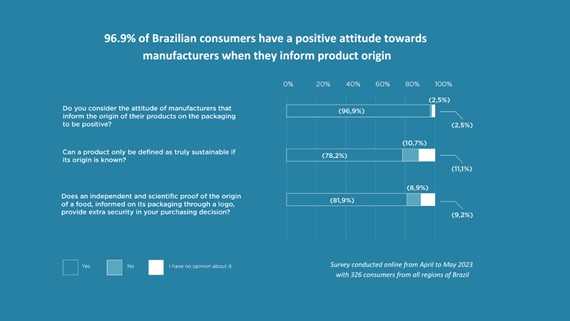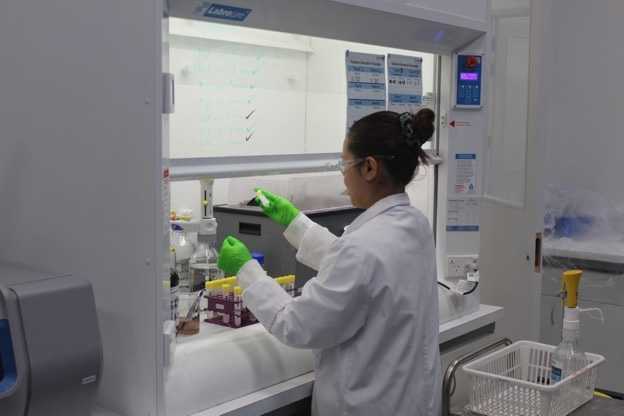SÃO PAULO, Brazil – Oritain, the world-leader in using forensic science to trace the origin of products and raw materials, today announced its science is available in Brazil. The company’s services have been sought after by clients aware of the growing international regulatory demands, such as those of the European Union, which prohibit imports of products whose origins are not identified and audited.
Operating in more than 20 countries and with a portfolio of clients from different sectors across 20 industries, Oritain has its own origins in the chemistry department of the University of Otago (Dunedin, New Zealand) in 2008. Since then, it has shown an admirable growth rate, around 90% per year over the last six years. The launch in Brazil is motivated by the importance of agribusiness to the country’s economy and by securing the first local service contract for one of the most important multinationals in the food sector.
Grant Cochrane, Oritain CEO, explains that South America represents a very strong market for the company, given the high quantity of primary products it exports. “There are excellent producers in the region and Oritain is an important ally, protecting them through origin verification”, he states.
“At Oritain, we believe creating tangible change in the world starts with the source of origin. It’s through partnering with our clients that we’re able to help reduce the risk of fraud and unethical practices, protect reputations, and ensure their customers get what’s promised.”
The company collects samples of raw materials in several countries, including Brazil. Analysis are carried out at the laboratory and headquarters in Dunedin and two other analysis centers located in Austria and Australia.
ESG and science on the rise
Proving products origin is a critical international requirement in the prevention of circulation of items from areas of deforestation, forced labor and other illegalities. The ESG practice has become a relevant resource around the world, allowing the possibility of preventing fraud and has the potential to assist in the sustainability of the supply chain. “Products that can’t be traced back to their origins cannot be deemed sustainable”, says the company’s regional director for Latin America, Gabriela Castro-Fontoura.
Knowledge about the origin of products circulating in the economy is an important asset capable of mitigating the effects of climate change. “To know where a product comes from is to have knowledge about the impact that item causes on the environment”, claims the executive. She also explains that in the case of coffee beans, the process can be accompanied by the producers from the collection of samples of the raw material in the field to the chemical and statistical analysis in the laboratories.
How it works
Katherine Jones, oceanographer, and Oritain’s Science Ambassador, explains that the technique used is not limited to identifying stages in the supply chain, which is a more common practice. “The verification is only complete when there is knowledge about where the raw materials actually come from”, she explains. “Oritain is the only company in the world to carry out this proof in a scientific way, through isotope tracking and statistical data analysis”, she adds.
The scientific study of a number of environmental factors such as soil composition, climate, altitude, precipitation, reveal details of a product’s origin, which Oritain classifies as the “origin fingerprint “. After an origin fingerprint is created, it can be compared with databases created by Oritain and used to audit products at any point in the supply chain, which allows identifying different types of occurrences along the “path”.
Brazilian consumers
Alongside the regulatory issue that permeates discussions on identifying the origin of food, consumer is another central point of the debate. The importance that Brazilians attribute to the origin of food, especially coffee, is the subject of a convenience survey commissioned by the company. The survey was carried out with 326 Brazilian consumers from all regions of the country, between April and May of this year. Its data shows that 96.9% of participants have a positive attitude towards manufacturers when they inform them of the origin of their products; 78.2% also consider that a product is only truly sustainable if its origin is known.

The complete survey data will be released on June 7th. The online survey presented a questionnaire to 1012 male and female respondents, of all ages and regions of Brazil.
For more information on Oritain visit www.Oritain.com.
About Oritain
Founded in 2008, Oritain is a world leader in using forensic science to verify product origin. Headquartered in New Zealand, Oritain partners with some of the world’s leading organisations to support their ESG commitments, reduce the risk of fraud and unethical practices, and protect their reputations.
A product’s origin can be identified by measuring the varying chemical composition of different environments. As something is grown, reared or made, it absorbs a unique ratio of elements, depending on the local temperature, altitude, precipitation and soil condition – known as an origin fingerprint. By analysing the unique isotopic fingerprint, Oritain can trace it back to its source, ensuring its authenticity and ethical production. Oritain’s methodology is robust enough to stand up in a court of law, and it can never be tampered with, replicated or destroyed.

















